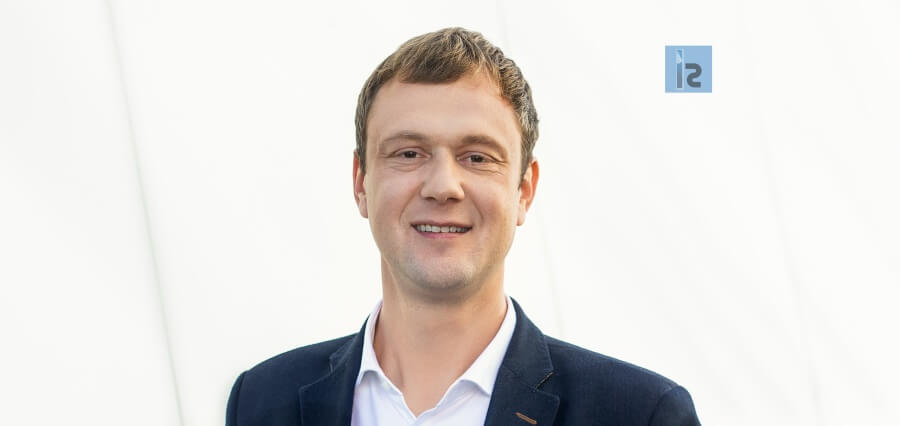Climate change and global warming degrade land, cause deserts to spread and temperatures to rise in a vicious cycle. The degradation of land and soil, cripples terrestrial ecosystems crucial for biodiversity, CO2 uptake, and nature’s fragile balance vital for all life on earth.
Twelve million hectares of productive land perish annually due to desertification and drought. Growing water scarcity magnifies the challenge of combating this dilemma. Nature alone lacks the resilience to endure continued overexploitation and impacts of climate change. Disrupting current trends by restoring ecosystems and fostering sustainable use of scarce resources is crucial for the health and prosperity of our planet.
Desert Control is a ClimateTech company which caters to this necessity. It is specialized in transforming deserts and restoring arid soil into fertile land. Its patented Liquid NanoClay (LNCTM) is a compound of clay and water proven to enhance the health of sandy arid soils by reducing salinity and improving hygroscopy (ability to absorb and hold water molecules and nutrients).
Research by ICBA (International Center for Biosaline Agriculture) validates increased yields while using up to 50% less water for irrigation. Restoring unproductive land and making deserts fertile can take 7-15 years, however, soil treated with LNCTM can be productive within 7 hours. The revitalized soil facilitates sustainable land usage and strengthens ecosystem resilience to overexploitation and climate change.
The Story of Inception
10 years ago, the Founder Kristian P. Olesen came to know about a problem created by the Aswan Dam on the Nile river. The Nile is rich in nutrients and deposits, such as slit and clay minerals. Before the construction of the dam in the 1960s, the Nile brought these minerals along and naturally built up the river delta and surrounding land. The Nile periodically flooded its banks. Such floods along with the river’s natural supply of minerals created fertile and green areas.
After the Aswan project, the flow of silt and clay minerals stopped behind the dam, and the controlled river did not flood its banks in the same way as before. The river delta and associated areas along the Nile went into regressive development with erosion, deterioration, and soil erosion. Egyptian scientists determined early on the direct cause being the lack of silt and clay minerals previously supplied naturally by the Nile. Research has shown that clay enriches soils with a better ability to absorb and retain water and nutrients.
Inspired by drilling technology and mud pump systems from the oil and gas industry, Olesen approached and solved the problem which had Egyptian scientists at a pass. Results from Egypt had shown that clay could act as a natural binder in soils with high sand contents. Degradation of soil gradually reduces the organic matter until only minerals like sand remain. If you try to shape a handful of sand into a lump, it is futile. The key is getting the sand grains to stick together, and in this way, to re-create formability and structure that resembles organic dark farming soil.
The Solution – LNC: Liquid NanoClay
Based on the architecture of mud pump systems, Kristian developed a technology that processes clay into a homogenous liquid. He invented LNCTM which enriches sandy soils to the equivalent of normal dark soils, with traits comparable to high-quality farming soil. LNCTM is a mineral-based entirely natural combination of clay and water (without any chemicals), that is ready for any organic use.
The first attempts revealed several issues. The breakthrough was a combination of established offshore concepts and in-house developed precision grinding, Nanotechnology, and particle theory. Through analysis and algorithms, automated through software, LNCTM undergoes formulation to form specific properties – right down to the particle, proton, and electron level.
LNCTM can contribute as a catalyst for soil and ecosystem resilience, enhancing their ability to cope with the harsh impact of climate change and over-exploitation. In a world where water is becoming a scarce resource at the same time, LNCTM’s proven effect with up to 50% reduction in irrigation needs will also be of great value.
A Step-by-step Guide to Implement the Process
- Process clay and water into a compound uniquely formulated for specific variables such as soil, sand and crop applications.
- LNCTM is applied to sand or arid sandy soil using established irrigation methods.
- The LNCTM percolates through the soil, forming a natural bond between sand particles.
- When sand particles bond, more stickiness and holding capacity in the soil texture is created. Without LNCTM, water and nutrients merely flow straight through sand or arid soil; leaving plants, root systems, and fungus unable to make use of them. LNCTM enables the soil to retain water like a sponge and fosters perfect conditions for growth.
- Seeds can be sown within 7 hours of an LNCTM application; allowing plants to grow even in areas previously unfeasible for them to survive.
The Dynamic Leader
Ole Kristian transforms technology innovations into business value at companies such as Citrix, RES Software, Sun Microsystems, Telenor, EVRY, and Global Eagle. His leadership has delivered significant shareholder value from M&A activities, turnarounds, corporate restructuring, and growth through a relentless focus on “People First – Customers Always.”
His philosophy is all about making others successful; Empowering colleagues to be successful creates a great workplace, inspiring them to make customers successful creates a great company.
With 20 years of experience from scaling business in global markets combined with driving change and innovation; his key take-aways are that even global business is a local business, and success depends equally on focus, execution, and engagement.
Today Ole Kristian dedicates his passion and energy to ClimateTech and combating some of the greatest threats to life on earth together with his team at Desert Control.



















